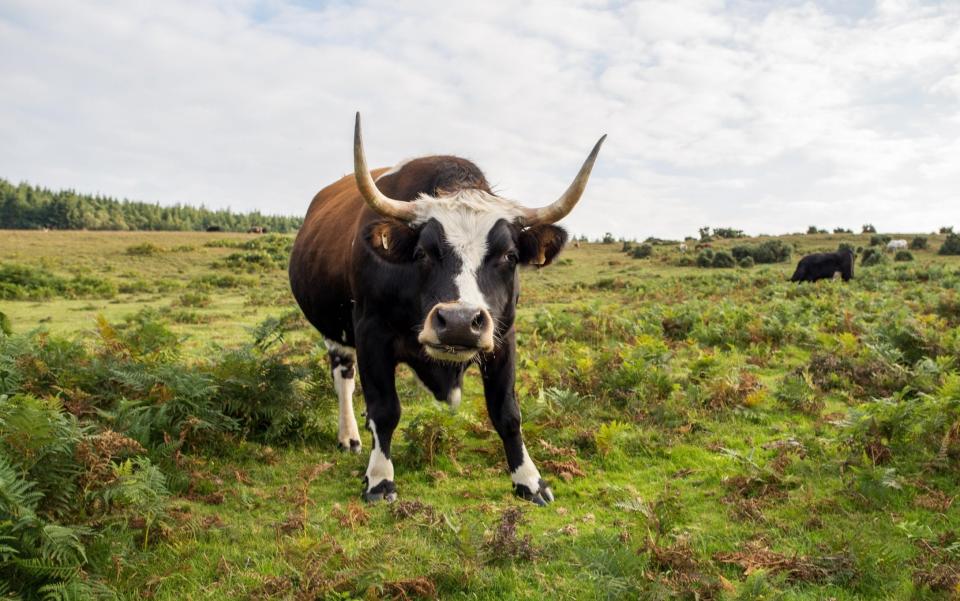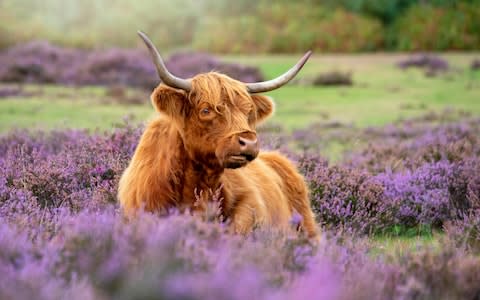Cattle in the New Forest could have their horns removed to prevent them attacking ramblers

Cattle in the New Forest could have their horns removed to prevent them attacking ramblers amid increasing fears for visitors' safety.
In the past 14 months, there have been at least eight serious incidents resulting in hospitalisation following an attack by cattle in the New Forest.
The increase in attacks has forced the New Forest Commoners Defence Association (CDA) to write a letter to the 200 people who are registered to turn cattle out to graze the forest, to dehorn their stock.
In July this year, Amelia Borrelli, 86, spent a week in the hospital after a cow plunged its horn into her leg, almost severing a main artery, as she walked her dog in the forest in Hampshire.
Dr Tony Hockley, chairman of the CDA said that such incidents used to be “unheard of” and were largely due to local dog walkers becoming too confident around the cattle. He added that Commoners - landowners with ancient rights to graze livestock on the forest - could also be liable for any compensation claim from victims.
Dr Hockley said: "These days people are over-confident while in the forest and let their dogs off leads constantly. "
But we have also considered what more, as commoners, we could do to protect all forest users from very serious harm.
"We recommend that all depastured cattle are dehorned. We believe this voluntary step can address an avoidable risk of serious injury.
"If somebody is seriously injured they will can claim against the commoner's insurance if the cow involved can be identified.
"Commoners are ordinary people with other jobs and when something like this happens it is upsetting for them."

British breeds for which horns are an essential characteristic, primarily English Longhorns and Highlands, will be excluded but breeds such as Dexters, Charolais and Devon may be subject to the dehorning.
Dr Hockley said: “Many are polled, so without horns, but there are a few large herds with horns.”
He added that polled livestock - where cows are bred with Bulls that do not have horns - is preferable, as the process of dehorning “is not pleasant for the cow or the person doing it”.
Elisa Allen, director of PETA UK, slammed the decision to dehorn the cattle and said that "peaceful solutions" should be found instead of "subjecting cattle to extreme pain.”
Annie Cooper, who runs Acres Down Farm in Minstead, said that while she already takes the horns off her cows for “animal husbandry reasons” she doesn’t think commoners should be made to do it “because of people”.
She added: "If you went into the jungle you wouldn't go and remove the claws from tigers or the tusks from elephants.
"Cattle are feral animals and weigh between 450 to 600 kilos. They aren't cuddly."
A spokesman for the New Forest Verderers, who regulate the forest, said the presence of commoners grazing their livestock was “fundamental” and that “people need to stay away from the animals”.
However, Killer Cows, a campaign group highlighting the perceived dangers of cattle to walkers, said “troublesome cows” should be removed and that herds should be “kept entirely separate from walkers”.

 Yahoo News
Yahoo News 